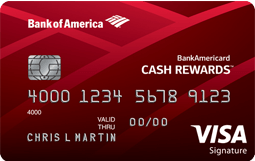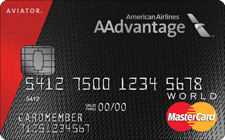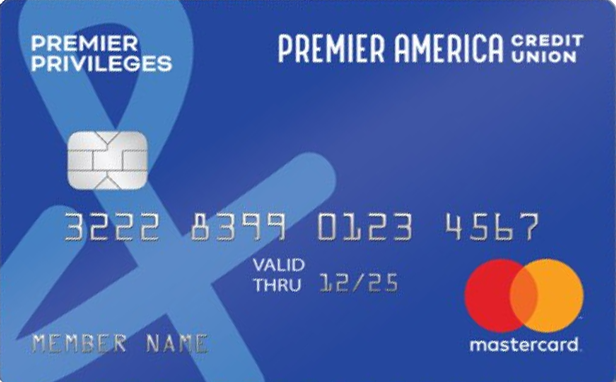- myFICO® Forums
- Types of Credit
- Credit Cards
- Why I always PIF
- Subscribe to RSS Feed
- Mark Topic as New
- Mark Topic as Read
- Float this Topic for Current User
- Bookmark
- Subscribe
- Mute
- Printer Friendly Page
Why I always PIF
Is your credit card giving you the perks you want?
Browse credit cards from a variety of issuers to see if there's a better card for you.
- Mark as New
- Bookmark
- Subscribe
- Mute
- Subscribe to RSS Feed
- Permalink
- Report Inappropriate Content
Re: Why I always PIF
I think the other thing that is important to point out is that having many cards you are spending across (say 10 or 20) makes it more difficult to budget because you aren't seeing your total spend easily. There are apps and spreadsheets to overcome this but it's very easy to forget what you are spending and where it's going. This doesn't really relate to PIF but something to think about. Less can be more with cards/budgeting.
As far as scoring and letting cards report balances, unless something is reporting maxed out or very high utilization I don't think the average consumer needs to worry about tweaking utilization. It's something "credit geeks" in the credit world do, but for the average consumer I don't think it's necessary and just causes frustration and confusion. Use your cards and pay your bills on times; that's the most important component of credit history.
Beyond that, I always PIF, unless I'm using a 0% promo or there is an unforseen temporary circumstance. There is no reason to pay interest on everyday purchases. If you find yourself constantly unable to PIF, you should be looking at your budget, or just going back to using debit, because why waste money on interest?
- Mark as New
- Bookmark
- Subscribe
- Mute
- Subscribe to RSS Feed
- Permalink
- Report Inappropriate Content
Re: Why I always PIF
@SMikulski49 wrote:It not good to carry a balance, but lets face it, if we did not have any people carrying balances and paying companies money from interest they would never offer these great benefits we are taking advantages off.
True, if no one carried a balance we would not recieve the reward offers we now have. That does not mean I would advise people to carrry balances. If fires did not happen, the fire department would not have these nice fire trucks and well trained firemen. By that logic should we encourage people to start fires????
EX fico08=815 06/16/24
EQ fico09=809 06/16/24
EX fico09=799 06/16/24
EQ fico bankcard08=838 06/16/24
TU Fico Bankcard 08=847 06/16/24
EQ NG1 fico=802 04/17/21
EQ Resilience index score=58 03/09/21
Unknown score from EX=784 used by Cap1 07/10/20
- Mark as New
- Bookmark
- Subscribe
- Mute
- Subscribe to RSS Feed
- Permalink
- Report Inappropriate Content
Re: Why I always PIF
@sarge12 wrote:
@SMikulski49 wrote:It not good to carry a balance, but lets face it, if we did not have any people carrying balances and paying companies money from interest they would never offer these great benefits we are taking advantages off.
True, if no one carried a balance we would not recieve the reward offers we now have. That does not mean I would advise people to carrry balances. If fires did not happen, the fire department would not have these nice fire trucks and well trained firemen. By that logic should we encourage people to start fires????
haha I do not encourage people to carry balances, never have never will. I said in my post it is not good to carry a balance. Just simply saying thanks to those who do carry a balance because of them we get to enjoy the little perks.








- Mark as New
- Bookmark
- Subscribe
- Mute
- Subscribe to RSS Feed
- Permalink
- Report Inappropriate Content
Re: Why I always PIF
I love carrying balances!
... On 0% APR promo periods.

- Mark as New
- Bookmark
- Subscribe
- Mute
- Subscribe to RSS Feed
- Permalink
- Report Inappropriate Content
Re: Why I always PIF
I am not opposed to carrying balances on extremely low-interest, single-digit APR cards. Just for the record, almost all of my open credit cards are either PIF each month, or are carrying 0% promos that I will pay off without having paid a penny in interest.
Having said that: I do not mind carrying a balance on my FNBO Amex at 6.50% V APR for example, because the interest on the modest balance amount I'm carrying is actually neglible. If I had the 5.24% V Unify FCU Variable-Rate card (which I may be interested in acquiring at some point down the road), I would not mind paying interest on it either, in moderation of course.
Paying interest is not an evil in and of itself, again if one does so in moderation so the amount incurred is mathematically insignificant.




































- Mark as New
- Bookmark
- Subscribe
- Mute
- Subscribe to RSS Feed
- Permalink
- Report Inappropriate Content
Re: Why I always PIF
@galahad15 wrote:I am not opposed to carrying balances on extremely low-interest, single-digit APR cards. Just for the record, almost all of my open credit cards are either PIF each month, or are carrying 0% promos that I will pay off without having paid a penny in interest.
Having said that: I do not mind carrying a balance on my FNBO Amex, at 6.50% V APR, because the interest on the modest balance amount I'm carrying is actualy neglible. If I had the 5.24% V Unify FCU Variable-Rate card (which I may be interested in acquiring at some point down the road), I would not mind paying interest on it either, in moderation of course.
Paying interest is not an evil in and of itself, again if one does so in moderation so the amount incurred is mathematically insignificant.
But what is the context of "do not mind"? As in, "I make a purchase and I cannot PIF this month" or "I have an opportunity that will earn more than the interest" or "Since the amiount willl be small, I will pay less than full" (which makes no sense to me as you have to make a payment, so could just as easily be in full) or something else?
But I do agree that people can be overly prescriptive about always PIF when you can. Many people do not PIF when they buy a house (and to a smaller extent autos etc). There may be times when the immediate need for something that you cannot PIF makes sense, e.g. buying something now (when you don't have all the funds) as you know it will go up 10% next month.
- Mark as New
- Bookmark
- Subscribe
- Mute
- Subscribe to RSS Feed
- Permalink
- Report Inappropriate Content
Re: Why I always PIF
A lot of times, homeowners are the ones who tend to carry balances for large (and a lot of times unexpected) purchases that can't be paid in full at the time. Prime example now is my refridgerator is dying and spoiling my food, if I didn't have my 0% APR promo on my EDP, I would most likely use my Ring for such a purchase because the interest is my lowest.
Things like home repair, auto repair and other stuff are prime examples of why folks would carry. Then there is always the HELOC argument for the lower interest rate, but I would carry a balance on a credit card with 15% APR before I give up my home as collateral with a HELOC. Not a chance.

- Mark as New
- Bookmark
- Subscribe
- Mute
- Subscribe to RSS Feed
- Permalink
- Report Inappropriate Content
Re: Why I always PIF
@kdm31091 wrote:I think the other thing that is important to point out is that having many cards you are spending across (say 10 or 20) makes it more difficult to budget because you aren't seeing your total spend easily. There are apps and spreadsheets to overcome this but it's very easy to forget what you are spending and where it's going. This doesn't really relate to PIF but something to think about. Less can be more with cards/budgeting.
As far as scoring and letting cards report balances, unless something is reporting maxed out or very high utilization I don't think the average consumer needs to worry about tweaking utilization. It's something "credit geeks" in the credit world do, but for the average consumer I don't think it's necessary and just causes frustration and confusion. Use your cards and pay your bills on times; that's the most important component of credit history.
Beyond that, I always PIF, unless I'm using a 0% promo or there is an unforseen temporary circumstance. There is no reason to pay interest on everyday purchases. If you find yourself constantly unable to PIF, you should be looking at your budget, or just going back to using debit, because why waste money on interest?
Good reasons to PIF all cards:
1) You don't have any 0% interest cards
2) Because it is a good habit and you can make the payment(s)
Financially it's beneficial to let all charges report on statements and then PIF each one 2 or 3 days before its due date. Simple, no hassle approach which works well if aggregate credit limits are more than 10x typical monthly spend.
If CLs are low relative to spend, then mid cycle partial payments may be needed (in addition to statement PIF) to avoid adverse action due to excessive utilization. Those new to credit may need some time to build up CLs thus, the "double payment per billing cycle".
Fico 8: .......EQ 850 TU 850 EX 850
Fico 4 .....:. EQ 809 TU 823 EX 830 EX Fico 98: 842
Fico 8 BC:. EQ 892 TU 900 EX 900
Fico 8 AU:. EQ 887 TU 897 EX 899
Fico 4 BC:. EQ 826 TU 858, EX Fico 98 BC: 870
Fico 4 AU:. EQ 831 TU 872, EX Fico 98 AU: 861
VS 3.0:...... EQ 835 TU 835 EX 835
CBIS: ........EQ LN Auto 940 EQ LN Home 870 TU Auto 902 TU Home 950
- Mark as New
- Bookmark
- Subscribe
- Mute
- Subscribe to RSS Feed
- Permalink
- Report Inappropriate Content
Re: Why I always PIF
This won't probably be a popular opinion, but I do think it is healthy to carry a balance in other situations. I carry a few 0% intro APR balances that I have the ability to pay off because I want to show some of my new lenders that I can consistently pay my bill well above the minimum payment. So far, 3 of the 4 lenders I've carried with in that way have all provided 6 month auto CLIs.
I know that we always say that nothing is set in stone and we assume too much about lenders based on our sample size of experiences, but I think what we primarily do here is track patterns and that's what I look for here. I pay attention to lender reputation. There's a few here that will always slap your hand for that statement, but I believe that reputations and cliches often become so because there is some merit there. For example, I'll always PIF AMEX because I've read one too many times that among listed denial reasons for CLIs, not making high enough payments when those people barely carried a balance.
- Mark as New
- Bookmark
- Subscribe
- Mute
- Subscribe to RSS Feed
- Permalink
- Report Inappropriate Content
Re: Why I always PIF
@Anonymous wrote:
@galahad15 wrote:I am not opposed to carrying balances on extremely low-interest, single-digit APR cards. Just for the record, almost all of my open credit cards are either PIF each month, or are carrying 0% promos that I will pay off without having paid a penny in interest.
Having said that: I do not mind carrying a balance on my FNBO Amex, at 6.50% V APR, because the interest on the modest balance amount I'm carrying is actualy neglible. If I had the 5.24% V Unify FCU Variable-Rate card (which I may be interested in acquiring at some point down the road), I would not mind paying interest on it either, in moderation of course.
Paying interest is not an evil in and of itself, again if one does so in moderation so the amount incurred is mathematically insignificant.
But what is the context of "do not mind"? As in, "I make a purchase and I cannot PIF this month" or "I have an opportunity that will earn more than the interest" or "Since the amiount willl be small, I will pay less than full" (which makes no sense to me as you have to make a payment, so could just as easily be in full) or something else?
But I do agree that people can be overly prescriptive about always PIF when you can. Many people do not PIF when they buy a house (and to a smaller extent autos etc). There may be times when the immediate need for something that you cannot PIF makes sense, e.g. buying something now (when you don't have all the funds) as you know it will go up 10% next month.
Thanks for your feedback. In response to the question above, I don't mind interest for a few reasons: thus far this year, I have earned more in rewards on the FNBO Amex than I have paid in interest charges; also by the end of the year based on interest accrued so far and taking into account the rewards that have off-set interest charges, I will have paid less than $100 in interest by the end of the year. So all in all, it is a relatively insignificant amount, or proverbial "pennies on the dollar", so to speak.



































